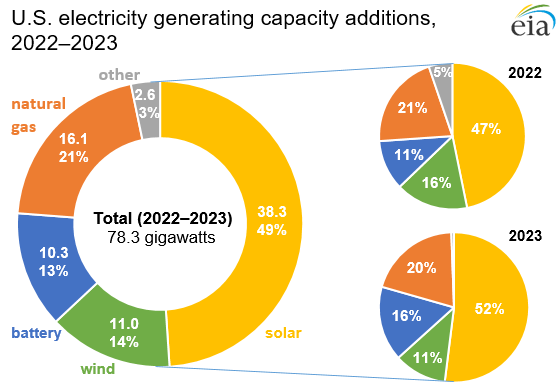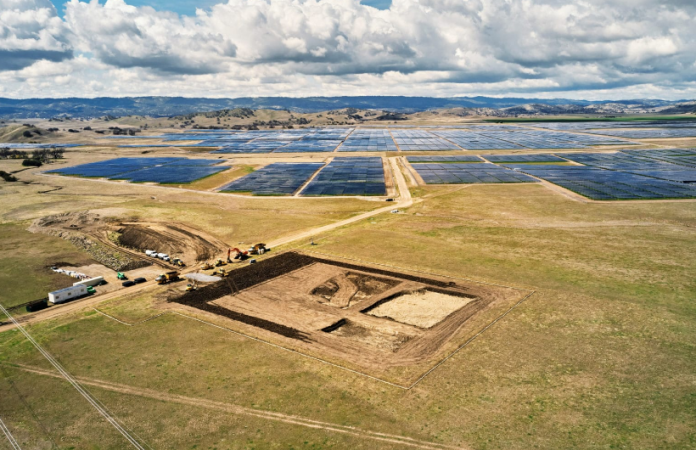In its latest release of Electric Monthly Update, the Energy Information Administration (EIA) projects 78GW of generating capacity additions in 2022 through 2023. A majority of the additions will be large-scale solar and energy storage projects, forecast to add 62% of the total figure at 49GW. These totals do not include capacity added by smaller-scale distributed rooftop solar project
Dependent on configuration and charging sources, both solar and now energy storage may be eligible for the federal Investment Tax Credit, which is scheduled to phase down by 2024. The credit was extended to 26% in 2021 and 2022, will step down to 22% in 2023 before falling to 10% in 2024 onward.

Utility-scale solar is expected to add 49% (38GW) of capacity. Since 2020, the sector has added more capacity (19GW) than wind (11GW), and that trend is expected to continue. In 2022, solar PV is forecast to add 21GW to the grid, and wind is pegged for 16GW.

Battery storage is set for big gains as well, with EIA estimating 10GW capacity to be added over two years. Over 60% of this capacity is expected to be co-located with solar PV projects. Battery growth is expected to grow 300% from 2020 through 2021, with 1.5GW installed last year, and an estimated 4.5GW this year. Falling battery prices, favorable economics when deployed with solar, and value-adders like grid flexibility and resilience services are driving this growth, said EIA.
Three states comprise more than 52% of the 49GW of solar + storage expected to come online in the next two years. California leads the way with 11GW, followed by Texas with 10GW, and New York with 4GW.






